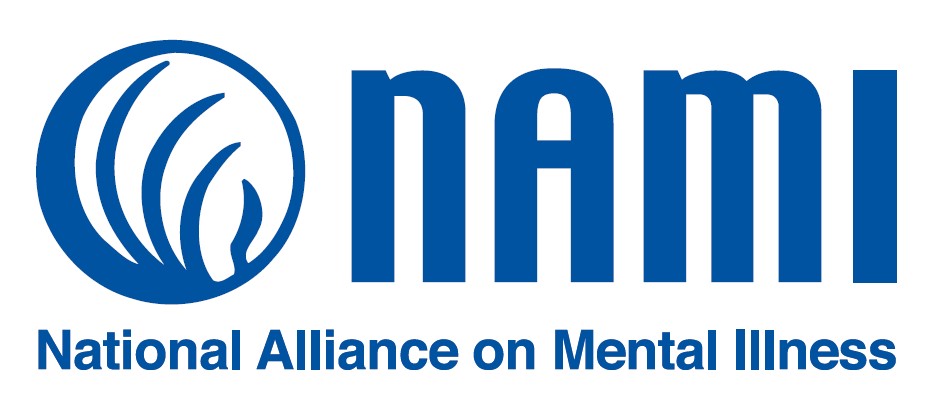- the mylemarker
- Posts
- ❄️ Ice bucket, a freebie, and more
❄️ Ice bucket, a freebie, and more
Read about the return of the ice bucket challenge, grab your free download, and stay informed on the latest social-emotional insights for kids and teens.
THE ROAD MAP
In this newsletter, you’ll find:
🚦 First Stop (Ice Bucket Challenge Returns for Mental Health)
🛤️ Site-seeing at mylemarks.com (FREE: Mindful Listening)
📣 A Word from Headway
📡 On the Radar (Mom’s trauma, delayed licenses, and more)
📅 Mark Your Calendars
🤗 Sharing is Caring (spread the mylemarker love and earn)
Let’s go!

FIRST STOP
❄️ Ice Bucket Challenge Returns for Mental Health

The viral phenomenon that captivated the internet in 2014 — the Ice Bucket Challenge — is back, but this time with a focus on mental health. Students from the University of South Carolina’s Mental Illness Needs Discussion (MIND) club launched the #SpeakYourMIND campaign in March to raise awareness and funds for Active Minds, a nonprofit aimed at changing mental health norms among youth. Participants pour ice water over themselves, post the videos online, and nominate others, while encouraging open conversations about mental health struggles and support.
Initially hoping to raise just $500, MIND founder Wade Jefferson said the campaign's viral success — topping $100,000 in donations — has been surreal, especially after garnering participation from public figures like Peyton Manning and Emmanuel Sanders. Brett Curtis of Active Minds noted the ironic full-circle moment: nonprofits have long sought "their own Ice Bucket Challenge," and now it’s happening again, repurposed for a new cause.
“We’re thrilled to see the spirit of the ALS Ice Bucket Challenge live on in new forms of activism.”
The ALS Association, which benefited from the original 2014 challenge, expressed enthusiastic support for the mental health-centered revival. At its original peak, the Ice Bucket Challenge drew attention from global celebrities like Oprah Winfrey and Bill Gates, though skeptics questioned whether it would lead to sustained impact. For this new version, Curtis emphasized that donations were secondary to creating awareness and empowering student-led activism. The #SpeakYourMIND movement highlights the power of creative grassroots campaigns to drive change around critical issues like mental health.
SITE-SEEING at mylemarks.com
FREE DOWNLOAD: Mindful Listening
The Mindful Listening worksheet helps kids slow down and tune in to the sounds around them. By sitting quietly while listening, they learn to focus their attention and become more aware of the present moment. This simple activity can help reduce stress, improve focus, and encourage calm. Kids are invited to write or draw the sounds they hear, making it a creative and reflective exercise.

Put It in Action!
Here are a few ways you can use this worksheet with clients:
🌳 Take the Practice Outside – Go for a short walk or sit with the client outdoors and guide them through a mindful listening activity in real-time.
🧘 Use It as a Grounding Tool – When a child is feeling overwhelmed or anxious, invite them to pause and use this exercise to re-center.
🎧 Sound Exploration Game – After practicing, ask kids about the sounds that they noticed.
What was the most interesting or surprising sound you noticed?
Were there any sounds you didn’t notice at first but heard as you kept listening?
Did any of the sounds remind you of a memory or feeling?
🗣️ Build a Routine – Encourage children to practice mindful listening once a day and reflect on how it affects their mood or focus over time.
A WORD FROM HEADWAY
Your best practice starts with accepting insurance
When looking for a mental health provider, over half of patients want one who takes their insurance.
Headway helps you do it with ease. Get credentialed, secure better rates with top plans, and earn a steadier income with bi-weekly payments.
It's all on one free-to-use platform, no commitment required.
ON THE RADAR
👩👧💔 Mom’s Trauma, Child’s Struggle
A recent study finds that mothers’ adverse childhood experiences (ACEs) may contribute to emotional and behavioral problems in their children with ADHD or autism. Researchers discovered that maternal trauma was linked to higher rates of ACEs in children, along with maternal traits of ADHD and ASD. No such link was found for fathers, which may reflect different caregiving roles or underrepresentation in the sample. The study emphasizes the importance of incorporating maternal trauma histories into assessments and support plans for neurodivergent children. Screening for ACEs could offer critical insights and strengthen trauma-informed care for families. As researcher Maria Davidsson says, “It’s important to consider the entire context.”
👩🍳 Cooking with Kids Builds Confidence, Skills & Connection
Cooking with kids is a powerful tool for fostering mental wellness, connection, and important life skills. Experts and parents agree that getting kids involved in the kitchen early builds independence, encourages healthy eating, and nurtures confidence. As Jessica Battilana from King Arthur Baking Company says, cooking should be seen not as a chore but “an opportunity to be together as a family.” Research and parent anecdotes alike show that children who cook gain real-world skills such as math, reading, and executive functioning while also developing patience, responsibility, and resilience.

Cooking also helps picky eaters become more adventurous, especially when they’ve had a hand in preparing the food. Sensory experiences—touching ingredients, shopping for produce, following steps—create openness to trying new foods. From stirring batter to sautéing veggies, children develop a sense of accomplishment and purpose.
🚗 Why Teens Are Putting the Brakes on Driving
Getting a driver’s license used to be a teenage milestone, symbolizing freedom and independence. But recent data shows many teens are choosing to delay it—often by a year or more. While rideshare apps and busy academic schedules play a role, so do larger mental health and economic factors. Many teens now socialize online, rely on apps for transportation, and are overwhelmed by school and extracurricular demands.
Mental health is also a major contributor. Psychologist Dr. Rhonda Boyd notes that teens with anxiety or depression often lack the motivation, confidence, or focus to take this developmental step. Depression can reduce energy and make even basic responsibilities feel overwhelming, while anxiety can heighten fears about independence. As a result, teens may miss out on key developmental milestones like managing jobs, healthcare appointments, or social commitments. Delaying driving can also have safety implications: teens who get licensed later often bypass graduated licensing programs that build skills gradually.
MARK YOUR CALENDARS
Here are some upcoming dates you should know!
APRIL
International Dance Day (April 29) – Encourages participation and education in dance, highlighting its cultural and social impact.
Denim Day (April 30) – A day to spread awareness about sexual violence prevention.
MAY
Mental Health Awareness Month – An annual campaign to raise awareness about mental health, reduce stigma, and promote resources for support.
National Teacher Appreciation Week (May 5–9) – Celebrates the dedication of educators and their lasting impact on students and society.
National Children's Mental Health Awareness Day (May 7) – Emphasizes the importance of caring for every child's mental health.
Maternal Mental Health Awareness Week (May 5-11) – Raises awareness about mental health issues affecting mothers during and after pregnancy
Mother's Day (May 11) – Honors and celebrates mothers and maternal figures for their love, guidance, and care.
Worksheets | Activities | Workbooks | Journals | Games | Videos | Freebies



